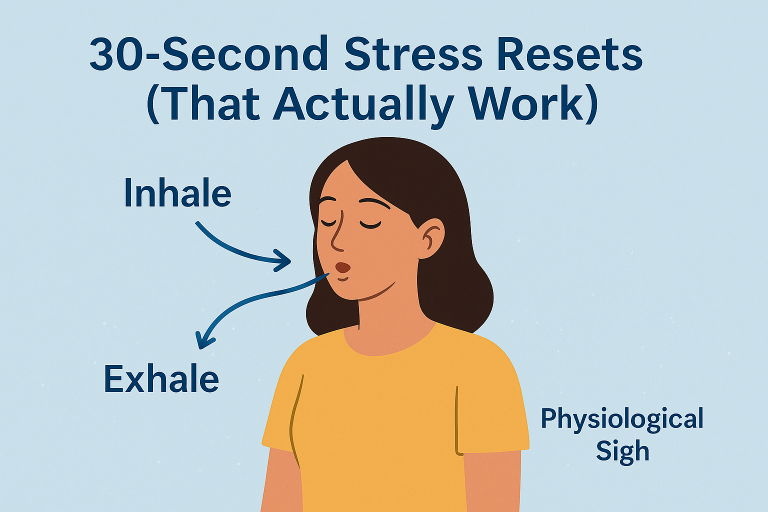What is mental health?
Mental health is an umbrella term used to describe the state of mind of an individual. It includes emotional wellbeing, psychological well-being, and social well-being.
Mental health is often considered to be synonymous with happiness, however, there are other factors that contribute to mental health such as self-esteem, confidence, and optimism.
Mental health problems can affect anyone at any stage of life. They can occur at any time and can range from mild to severe depending on the stresses of life. Some people may suffer from anxiety, depression, bipolar disorder, schizophrenia, obsessive-compulsive disorder, eating disorders, personality disorders, and others.
Mental health concerns can be caused by a number of different factors including genetics, environment, trauma, stress, and poor lifestyle choices.
Mental health conditions and mental disorders
Depression
This is probably the most widely known condition associated with mental health because everyone has heard of depression at least once in their life. But did you know that more than half of Americans will experience clinical levels of depression at some point during their lifetime?
That’s right! More than 50% of us will suffer from depression at some point in our lives. Now, while depression is often thought of as an emotional state, it affects every aspect of your physical and psychological wellbeing.
In fact, research shows that those who suffer from depression tend to feel tired, irritable, guilty, hopeless, worthless, anxious, angry, sad, lonely, and even suicidal.
Anxiety Disorders
Another popular misconception about mental health is that anxiety disorders only affect women. While they do occur much less frequently among men, statistics show that approximately 40 million American adults currently struggle with an anxiety disorder.
These include panic attacks, generalized anxiety disorder, obsessive-compulsive disorder, post-traumatic stress disorder, social phobia, specific phobias, agoraphobia, and separation anxiety. The good news is that these disorders respond extremely well to treatment.
Bipolar Disorders
Many people believe bipolar disorders are something that happens to teenagers or young adults. However, according to the National Institute of Mental Health, nearly 2.5 million children and adolescents between ages 10 and 17 years old live with bipolar disorder. Additionally, over 3 million teens and young adults aged 18 through 25 years old have been diagnosed with bipolar disorder.
Schizophrenia
Most people associate schizophrenia with older individuals. They may assume that schizophrenia is caused by aging or genetics. However, recent studies suggest that environmental factors such as trauma play a role in causing schizophrenia. According to the NIMH, roughly 5 percent of U.S. residents age 12 and older have experienced symptoms consistent with schizophrenia.
ADHD
Attention deficit hyperactivity disorders are another common misconception about mental health. People often confuse attention deficits with ADD. Although both terms refer to problems paying attention to, they differ significantly in how they manifest. For example, ADD refers specifically to difficulty focusing on tasks due to distractibility whereas attention deficits can be present without any apparent cause.
OCD
Obsessive-Compulsive Disorders, which include trichotillomania, body dysmorphic disorders, hoarding, and skin picking, are characterized by unwanted thoughts or behaviors that lead to distress or impairment. It’s estimated that up to 4.7 million Americans struggle with this type of behavior.
PTSD
Post-traumatic stress also referred to as “shell shock,” occurs when someone experiences a terrifying event like war, rape, natural disaster, etc., and then suffers severe fear and/or helplessness after experiencing it. Symptoms typically last for weeks or months following the initial incident. In some cases, however, the effects continue long into adulthood.
Why is mental health important?
Mental health is important because it impacts everyone’s quality of life. It can cause people to feel sad, anxious, angry, stressed, confused, guilty, ashamed, or worthless. These feelings can lead to poor decision-making, substance abuse, and even suicide.
How does one get help if he or she has a problem?
If you are struggling with depression, anxiety, addiction, eating issues, self-harm, suicidal ideation, or other mental illness, there are many resources available to assist you.
You should always seek professional assistance from your doctor first before seeking out additional support groups or therapy sessions. If you decide to pursue counseling services, make sure you find a therapist who specializes in treating your particular issue.
Physical health is just as important as emotional well-being. You need to take care of yourself physically so that you don’t become sicker than you already are. This means getting enough sleep, exercising regularly, drinking plenty of water, avoiding alcohol, smoking cigarettes, and staying away from drugs.
If you’re having trouble coping with an existing condition, talk to your family physician or psychiatrist about medication options. Your doctor will likely recommend antidepressants, anti-anxiety medications, mood stabilizers, antipsychotics, stimulants, sedatives, hypnotics, or pain relievers.
There are several different types of therapies that can help treat various conditions. Some examples include:
1) Cognitive Behavioral Therapy: CBT helps patients identify their negative thought patterns and replace them with more positive ones. The goal is to teach patients new ways of thinking and behaving.
2) Dialectical Behavior Therapy: DBT teaches patients skills to manage emotions effectively. Patients learn to recognize triggers and develop strategies to cope with difficult situations.
3) Interpersonal Psychotherapy: IPT focuses on helping individuals understand interpersonal relationships. Therapists use role-playing exercises to help clients practice social interactions.
4) Mindfulness-Based Stress Reduction: MBRS uses mindfulness meditation techniques to reduce stress levels and improve overall wellbeing.
5) Narrative Exposure Treatment: NART involves telling stories to patients while exposing them to feared stimuli. By retelling these stories over time, therapists hope to desensitize patients to previously frightening events.
6) Psychoeducation: PE provides information regarding specific disorders and treatments. For example, psychoeducational programs may provide information about how certain illnesses affect brain chemistry and behavior.
7) Rational Emotive Behavioural Training: REBT aims to change irrational beliefs by teaching patients logical arguments against those thoughts.
How to improve mental health
Mental health is important for everyone, especially when we are young. The best way to improve mental health is to be active, eat healthy food, sleep well, exercise regularly, and spend quality time with family and friends.
It’s also very helpful if people have someone they trust to confide in. Talking things through with others can really help us feel better. It doesn’t matter what the problem is; talking it out with other people makes everything seem less overwhelming.
The following tips can help you get started improving your mental health:
• Exercise at least 30 minutes every day. Walking, swimming, dancing, running, biking, hiking — whatever activity gets you moving!
• Eat a balanced diet rich in fruits, vegetables, whole grains, lean protein, low-fat dairy products, nuts, seeds, beans, legumes, fish, poultry, eggs, olive oil, avocado, coconut milk, and tea/coffee. Avoid processed foods, refined sugar, trans fats, alcohol, caffeine, artificial sweeteners, and high sodium diets.
• Get enough restful sleep each night. Try not to nap during the day. If you do need to take naps, make sure you wake up feeling refreshed.
What are the indications of good mental health?
Good mental health is when you feel happy, relaxed, and confident. When you feel like this, you are able to focus on what you want to do and achieve your goals. You don’t worry too much or become anxious because you know that life will go on no matter what happens.
When you experience poor mental health, however, you might find yourself worrying all the time, becoming easily stressed, having trouble sleeping, being irritable, sad, angry, lonely, depressed, substance use disorder, or even suicidal. These feelings often come from problems within our own minds.
Here are some additional indications of good mental health:
1) You feel like your life has a purpose
2) Your relationships are healthy
3) You’re able to cope with stress effectively
4) You enjoy doing activities that make you feel alive
5) You don’t suffer from anxiety or depression
6) You know how to manage your own feelings
7) You understand why you behave the way you do
8) You take responsibility for your actions
9) You believe that you deserve happiness
Ending note
In conclusion, I hope these articles helped you gain more knowledge about mental health. Mental illness affects many lives around the world. We must work together to end stigma and discrimination so that people suffering from mental illness receive proper treatment and support.
Thank you for reading my article. Please share any questions or comments below.




